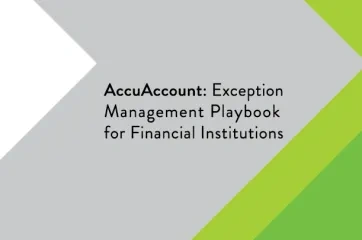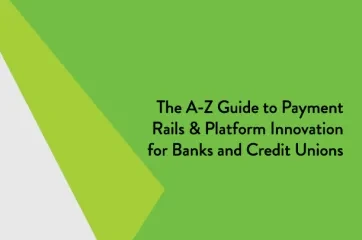Document Indexing
Document indexing involves saving information in a consistent and logical fashion.
Indexing can be as basic as organizing hard copies in a particular file using a specific method, or slightly more technical, such as placing digital copies in a shared electronic file. Decisions on how and where to file documents can be made manually by bank and credit union personnel or sometimes automatically via software.
Financial Institutions Have Indexed Documents for Decades
As alluded to in the previous paragraph, document indexing has been around for quite some time. When most people hear the term “document indexing,” thoughts of technologically-driven processes that leverage AI (artificial intelligence) and OCR (Optical Character Recognition) come to mind.
However, in reality, banks and credit unions have been organizing documents for as long as financial institutions have been in existence. Find an institution that first opened its doors 100 years ago, and you are sure to find it has drawers full of organized (aka “indexed”) documents.
Modern software simply helps make all aspects of indexing more efficient and accurate, even helping track when it’s time to purge documents in accordance with retention schedules.
How Can Banks and Credit Unions Benefit from Effective Document Indexing?
Indexing is synonymous with organization, and, in banking, this is one of the hallmarks of a well-run financial institution. Indexing is essential for efficient document retrieval and retention—especially when you’re dealing with thousands or tens of thousands of paper documents.
Document indexing also serves as a framework that allows a banker to identify necessary files that have yet to be completed and signed by a client. Proper indexing also results in a better customer or member experience, since fewer mistakes are made—and when they are, correction is easier.
Similarly, when an auditor or examiner requests a specific loan file or customer/member record, having a well-structured system helps tremendously. Being able to produce records in a snap can cultivate a healthier reputation and lead to lower audit fees, as auditors spend less time on-site filtering through mountains of disorganized files. Failure to show superior organization makes auditors and examiners wonder what else you may be missing.
That’s the last thing you want to do.
Additional Resources
For more information about document indexing, be sure to check out our extensive resource library with free document tracking spreadsheets, whitepapers, and eBooks.
Looking for more banking definitions? Check out our banking definitions page.







